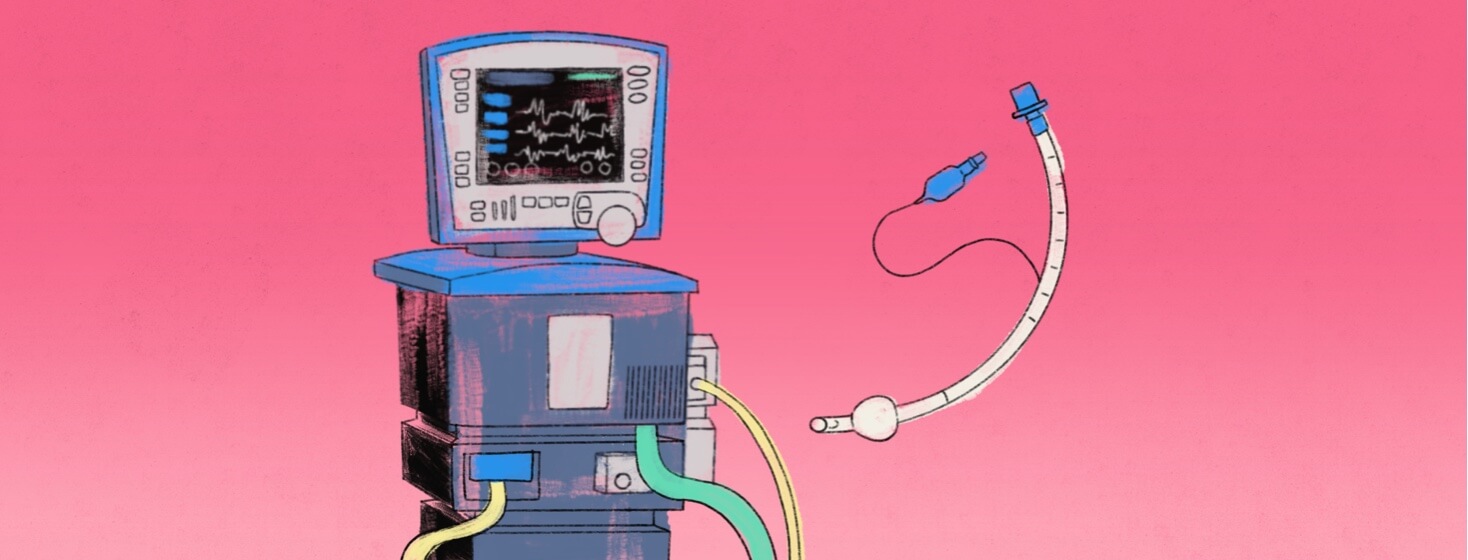What Is Intubation and What Are Ventilators?
So, sometimes heart failure causes flare-ups (exacerbations), and flare-ups often require you to seek help, which often results in a trip to the emergency room (ER). Once in the ER, doctors and nurses and respiratory therapists, like me, will work their magic to get you feeling better. That is always our goal.
Most of the time we are able to accomplish this with medicine or simple devices such as a BiPAP (bilevel positive airway pressure) machine. Sometimes, though, doctors may decide that the best path forward is with intubation and mechanical ventilation. So, what is intubation? What is mechanical ventilation?
What is intubation?
Intubation is where a tube is inserted into your airway. The tube is called an artificial airway or an endotracheal tube. A medical term for intubation is endotracheal intubation.1
If a doctor decides this is necessary, a doctor or a nurse will explain the procedure to you and/or your loved ones. The doctor or nurse will also explain why it is necessary and how long you can expect to be intubated for.
Intubation allows doctors to completely rest your heart and lungs. This gives doctors time to get you breathing easier and feeling better with their medicines.
There is really no way of knowing how long a person will be intubated for. But usually it’s only for a day or 2 for people experiencing heart failure flare-ups.
Just like when you are having surgery, you will be given medication so that you are sedated and paralyzed. This way you will sleep right through it and not be aware of what is going on.
With my assistance as a respiratory therapist, a doctor will take the tube and insert it into your airway. I will then secure the airway using a device that straps to your face. I will then attach the ventilator tubing to the tube and connect this to the ventilator.
What is a ventilator?
In my humble opinion, the ventilator is one of the greatest inventions of all time. These are machines that breathe for you while you need to be sedated and paralyzed, such as during surgery or in the emergency room.
Modern ventilators are nice in that they have built-in microprocessors. I like to think of these microprocessors as brains. So, once you start to wake up and begin breathing on your own, the ventilator’s brain recognizes this.
And that makes it so you control the ventilator rather than the other way around. This makes you feel more comfortable. And it speeds up the time from intubation to extubation.
As noted above once you are intubated and placed on a ventilator, doctors and nurses will use their medicines to get you feeling better. Once the doctor feels you are better, sedation will be gradually decreased and you will start to wake up. By now, you should feel your breathing is easy. Once the doctor feels you are fully awake, the decision will be made to extubate.
What is extubation?
The best part of intubation is when the tube comes out. Since the process of putting the tube in is called intubation, the process of taking the tube out is called extubation. Once you are safely extubated you will be given oxygen with a nasal cannula. This is the same type of oxygen delivery device some of you may use at home.1
Patients usually tell me how nice it is once they are extubated. Compared to when they came into the hospital, they feel so much better. Most people who required intubation will need to stay in the hospital for a few more days.
Intubation for heart failure
Thankfully, with our modern wisdom and medicine, in my experience, I do not see as many intubations for heart failure as I used to. The main reason here is due to all the great advancements in healthcare. Still, there are times when intubation and mechanical ventilation are helpful. And for this reason, they remain valuable options in the ER.
Have you or a loved one ever required intubation and mechanical ventilation? Please feel free to share your story in the comments below.
Editor's Note: John Bottrell has been a respiratory therapist for over 20 years. A good part of his job is taking care of people with heart failure.

Join the conversation